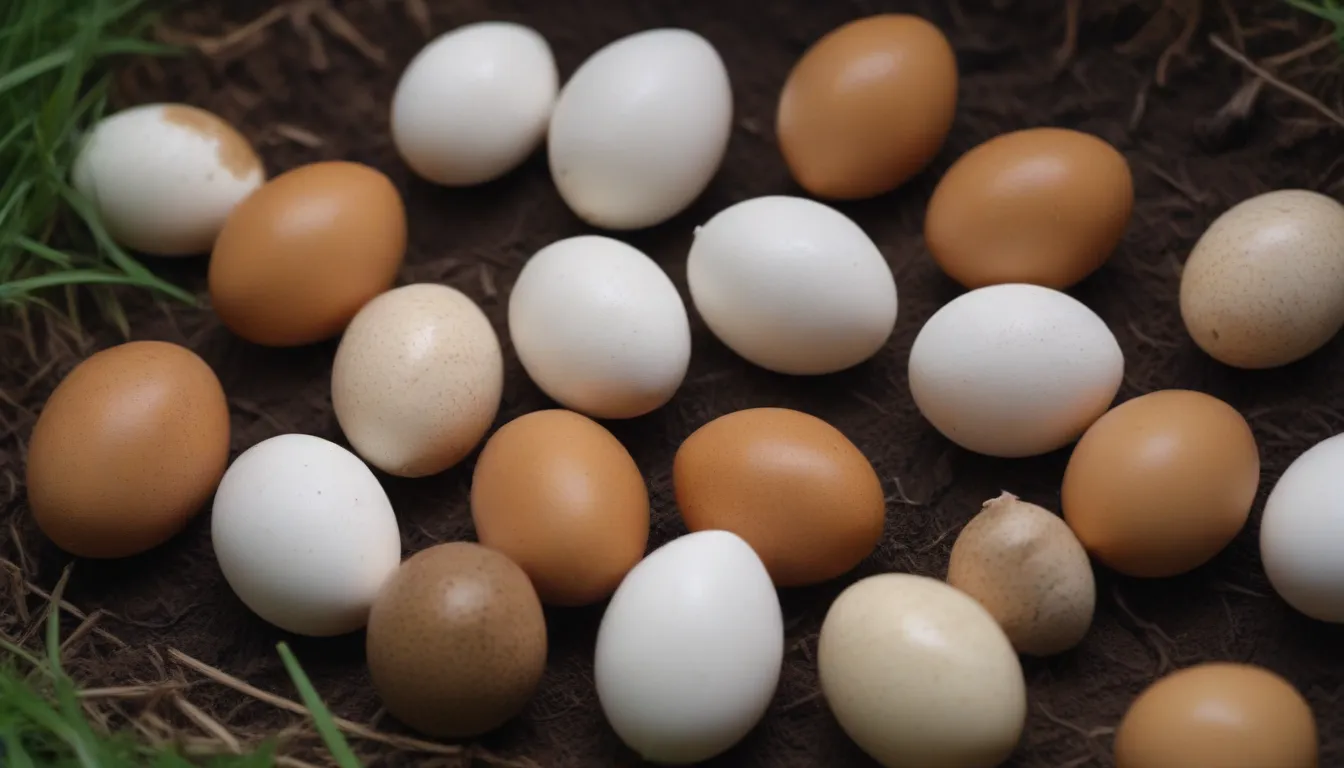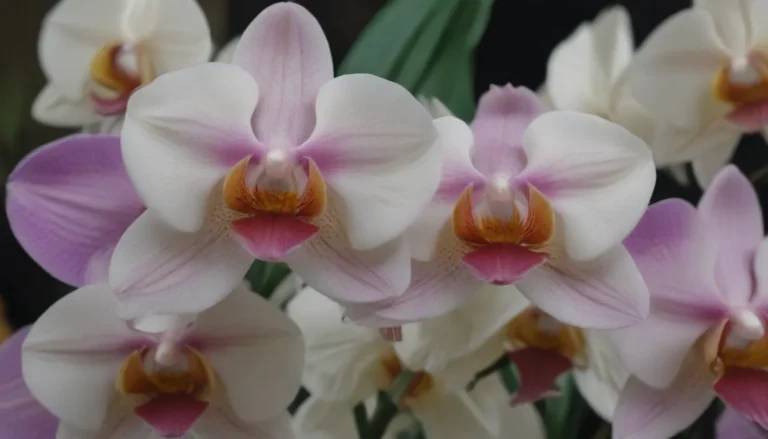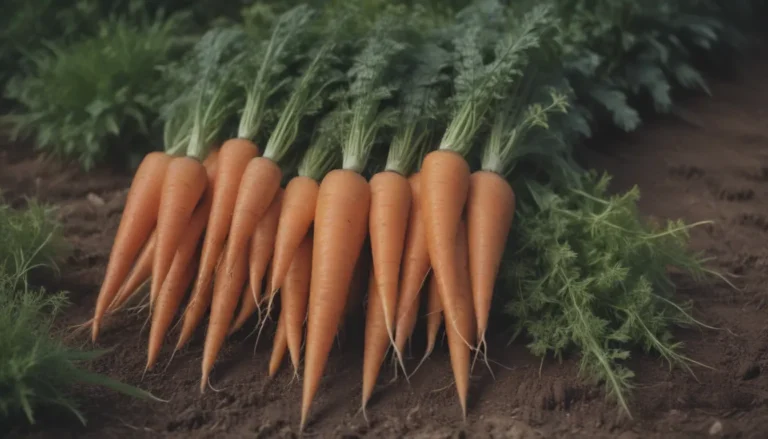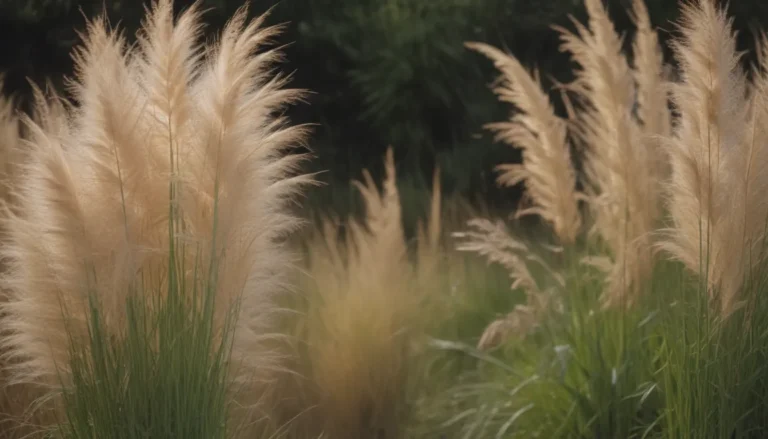The Incredible Benefits of Using Leftover Eggshells in Your Garden

Are you looking for a natural, eco-friendly way to boost the health and vitality of your garden? Look no further than your kitchen trash can! Instead of throwing away those leftover eggshells after making breakfast, consider giving them a second life as a powerful fertilizer for your plants. Eggshells are packed with nutrients that can benefit your garden in numerous ways, from reducing soil acidity to deter pests and promoting rapid plant growth.
In this comprehensive guide, we will explore the various benefits of using eggshells in your garden, how to make and use eggshell fertilizer effectively, and which plants are most likely to thrive with this natural supplement. So, let’s dive in and discover how you can maximize the potential of your garden with this simple yet effective gardening hack.
Why Eggshells Make Great Fertilizer for Your Garden
Eggshells are not just waste from your morning omelet – they are a valuable source of nutrients that can enrich the soil and promote healthy plant growth. Here are some reasons why you should consider using eggshells as fertilizer in your garden:
- Reduce Waste: Instead of throwing away your eggshells, repurpose them in your garden to minimize kitchen waste and contribute to a more sustainable lifestyle.
- Power up Plants: The nutrients in eggshells, such as calcium and other minerals, can provide essential nourishment to your plants, helping them grow stronger and healthier.
- Increase Calcium: Plants that require a significant amount of calcium, such as tomatoes, peppers, and eggplants, can benefit from the calcium carbonate found in eggshells.
- Reduce Soil Acidity: Eggshells can help balance the pH levels of your soil, preventing acidity that may inhibit plant growth.
- Deter Pests: Eggshells can act as a natural barrier against pests like slugs and snails, keeping your plants safe from potential damage.
By incorporating eggshells into your gardening routine, you can create a more sustainable and thriving environment for your plants to thrive.
How to Make and Use Eggshell Fertilizer
Now that you understand the benefits of using eggshells in your garden, let’s explore how you can effectively create and apply eggshell fertilizer to maximize its impact on your plants:
-
Collect Eggshells: After enjoying your eggs, rinse the shells thoroughly to remove any residue. Allow them to dry out completely before proceeding to the next step.
-
Crush and Grind: Once the eggshells are dry, crush them into small pieces or grind them into a fine powder using a blender or mortar and pestle. The finer the particles, the quicker they will break down in the soil.
-
Apply to Soil: Sprinkle the crushed eggshells around the base of your plants, ensuring they are evenly distributed. You can also mix the eggshell powder with compost or mulch for added nutrients.
-
Repeat Regularly: For optimal results, incorporate eggshells into your gardening routine on a regular basis. You can save up eggshells over time and create a stockpile to use throughout the growing season.
By following these simple steps, you can harness the power of eggshells to nourish your plants and enhance the overall health of your garden.
Which Plants Benefit Most from Eggshell Fertilizer
Not all plants have the same nutrient requirements, so it’s essential to know which ones are most likely to benefit from eggshell fertilizer. Here are some plant varieties that can thrive with the addition of eggshells to their soil:
- Tomatoes: Tomatoes are heavy feeders that require ample calcium for healthy fruit development. Adding eggshells to the soil can prevent blossom end rot and promote strong, vibrant tomatoes.
- Peppers: Like tomatoes, peppers also benefit from the calcium content in eggshells, leading to improved growth and fruit production.
- Eggplants: Eggplants thrive in calcium-rich soil, making eggshell fertilizer a valuable addition to their growing environment.
- Ivy, Hydrangeas, Roses, Ferns: These ornamental plants can benefit from the nutrient-rich properties of eggshells, promoting lush foliage and vibrant blooms.
By tailoring your eggshell fertilizer application to the specific needs of your plants, you can create a flourishing garden that showcases the beauty and resilience of nature.
The Science Behind Eggshells in the Garden
But how exactly do eggshells work to benefit your plants and soil health? Let’s delve into the scientific principles behind this natural gardening hack:
- Calcium Absorption: The calcium carbonate in eggshells can be easily absorbed by plants, supporting cell growth and structure.
- Soil pH Regulation: Eggshells help neutralize acidic soil, creating a more balanced environment for plant roots to thrive.
- Pest Deterrence: The sharp edges of crushed eggshells act as a physical barrier against pests like slugs and snails, protecting your plants from damage.
By understanding the mechanisms behind eggshell fertilization, you can make informed decisions about incorporating this valuable resource into your gardening routine.
Tips for Maximizing the Benefits of Eggshell Fertilizer
To ensure you get the most out of using eggshells in your garden, consider the following tips to enhance their effectiveness:
- Crush Eggshells Finely: Grinding eggshells into a fine powder will accelerate their breakdown and nutrient release in the soil.
- Mix with Compost: Combine eggshell powder with compost or organic matter to create a nutrient-rich soil amendment for your plants.
- Rotate Application Areas: Alternate the placement of eggshells around different plant beds to evenly distribute nutrients and prevent excess buildup in one area.
- Monitor Plant Health: Observe your plants for signs of improvement or deficiency to determine if eggshell fertilizer is making a positive impact on their growth.
- Experiment with Different Plants: Test the effects of eggshell fertilizer on a variety of plant species to see which ones respond best to this natural supplement.
By incorporating these tips into your gardening routine, you can optimize the benefits of using eggshell fertilizer and create a lush, thriving garden that reflects your commitment to sustainable practices.
Conclusion
In conclusion, eggshells are not just a byproduct of your daily cooking routine – they are a valuable resource that can significantly benefit your garden and plants. By repurposing eggshells as a natural fertilizer, you can reduce waste, promote plant growth, and create a more sustainable gardening environment. Whether you are growing vegetables, flowers, or herbs, incorporating eggshells into your soil can lead to healthier, more resilient plants that flourish throughout the growing season.
So, the next time you crack open an egg, remember the potential that lies within those shells and how they can help you cultivate a garden that thrives with vitality and abundance. With a little creativity and a commitment to sustainable gardening practices, you can harness the power of eggshells to transform your garden into a vibrant oasis of natural beauty and growth.
With eggshells as your secret weapon, your garden will bloom with health and vitality, showcasing the incredible benefits of nature’s simple yet powerful resources. Embrace the potential of eggshell fertilizer and watch your garden flourish in ways you never thought possible.





